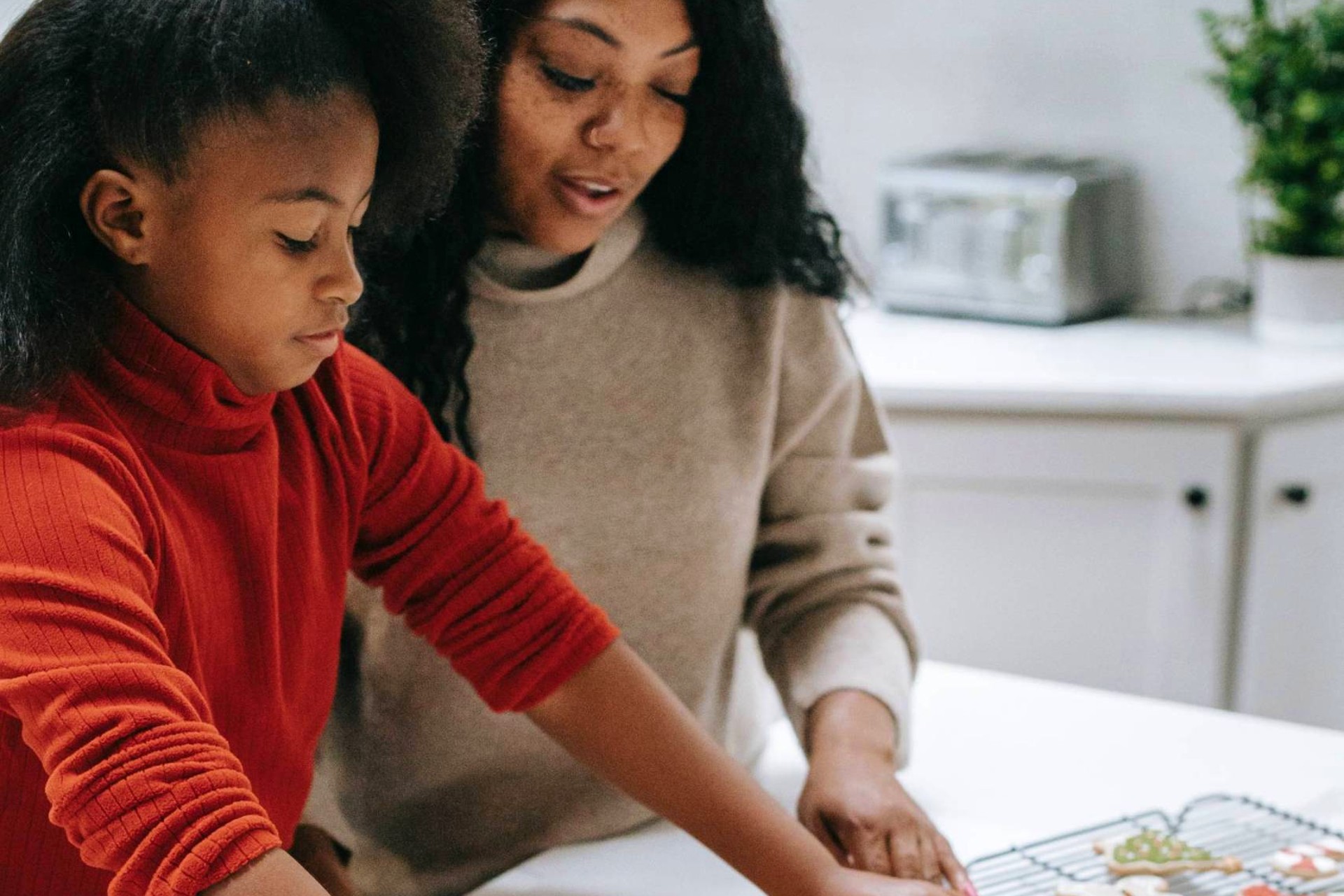With children home from school for the holidays, you may need some great, creative ideas for spending more time together. Here are a few.
Being away from school and friends is sometimes a challenge for young people. As parents, we have an opportunity to help them have some unique experiences. Use the holiday time to get creative about family and alone time. Here are some suggestions.
1. Bring them into the kitchen during the holidays.
Teaching children to cook is a simple method to encourage them to eat properly throughout their lives. A recent study showed that young people (aged 18 to 23) who had some experience in the kitchen, were more likely to eat well a decade later. This included things like eating less junk food and even getting more vegetables in their diet.
Find fun, easy recipes online and get in the kitchen. In addition, it’s important that you get in there together. Cooking is much more fun as a group activity. Try not to worry too much about the mess until you are finished. Let fun be the first order of business. The cleaning can be done later.
2. Be active in some way for at least one hour.
During the summer, there is some evidence that youngsters lose fitness and their body mass index (BMI) increases. As a result, children aged 5 and up should participate in physical activity for at least 60 minutes each day.
Incorporate activities that cause children to “puff” and build strength into your daily routine. For example, before supper, a few minutes of dancing, a game of “chasey” or “tip.” In addition, a scooter ride to the store is a fun alternative. Sledding, skating, skiing, or other winter sports are great if you have the snow for it.
Busy work schedules and a lack of space often seem like obstacles to activity. However, in spite of excessive screen time or lack of motivation, there are simple and effective ways to counteract these things. For instance, if you can’t go to a park, chat with your neighbors who have small children. Together, set up a way to share playtime supervision outside or on a safe street.
Physical disabilities need not get in the way. For instance, a physiotherapist or occupational therapist can assist your child to find ways to participate in games and sports. In addition, they can help find ways to incorporate strength-building exercises into daily life.
3. Visit the dentist with them during the holidays.
Perhaps it’s not the most popular holiday pastime. However, it’s crucial.
Tooth decay affects many children, and the holidays are a good time to remind them of important tooth care protocols.
From the age of 12 months, or within 6 months of the appearance of their first tooth, children should have a dental checkup at least once a year. Private health insurance is used by some families to cover some or all of their dental expenses. Use an online service finder to locate doctors, dentists, pharmacies, and other health-related services in your area.
4. Go on a geocaching excursion.
Geocaching is a treasure search in the wild. You use your GPS-enabled device (such as a phone) to find a “geocache” (a container). The geocache is hidden at that spot and you find it by following GPS (global positioning system) coordinates. A logbook and “prize” can be found inside the geocache. This could contain affordable tiny toys, ornamental buttons, novelties, or unique coins.
To get started, go to Geocaching.com and sign up for a free account. Comfortable walking shoes, suitable outdoor gear, a pen, water, nutritious food, and something to place inside the geocache are all recommended.
5. Take a swim during the holidays.
School vacations can be a great time for kids to improve their freestyle skills or simply gain confidence in the water.
This is especially critical for children with autism spectrum disorder (ASD). They are at greater risk. Therefore, taking time during the holidays to increase swimming skills is both fun and helpful. There are even online swim instructors to help your child.
6. Let them catch up on their sleep.
Children require more sleep than adults. Sleep helps them grow, learn, and develop. Getting a good night’s sleep might help your child be happier, concentrate better, and behave better.
It may be tempting to stay out later over the school holidays. However, the occasional late night for a special occasion is unlikely to hurt anyone. Nevertheless, you can help your child by keeping them in their regular routine. In addition, it’s wise to help them to get adequate sleep for their age:
- 10 to 13 hours for children aged 3 to 5.
- 9 to 11 hours for ages 6 to 13.
- 8 to 10 hours for ages 14 to 17.
To help your children get adequate sleep, download the Sleep Clock activity from the Sleep Health Foundation. As an added plus, adequate rest will boost their mood throughout the holidays.
7. Finally, allow them to be bored during the holidays.
Boredom is beneficial for kids. Therefore, you don’t have to entertain them every minute of the school holidays.
Kids learn important skills from boredom. They learn to think more imaginatively and improve their problem-solving skills by pushing through boredom and enjoying themselves.
As much as possible, let them choose activities that suit their mood. If your child is feeling energized, they will engage in physical activity. Fatigue, on the other hand, will make them want to seek out a relaxing activity.
Additionally, boredom also fosters resilience. When faced with challenges, children learn to cope with situations that are difficult or upsetting to them.













